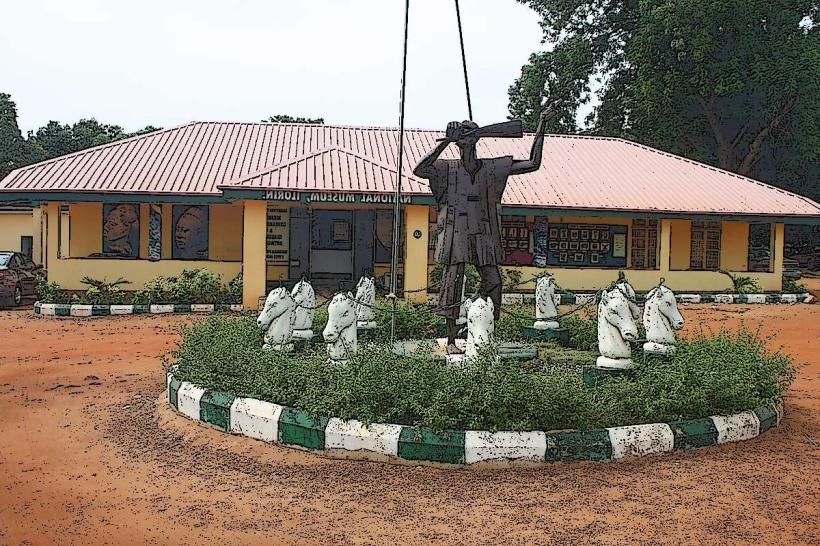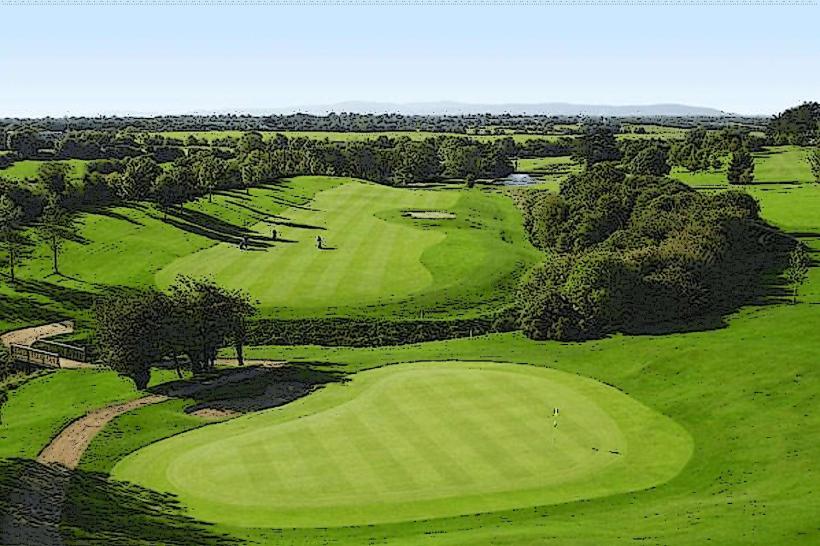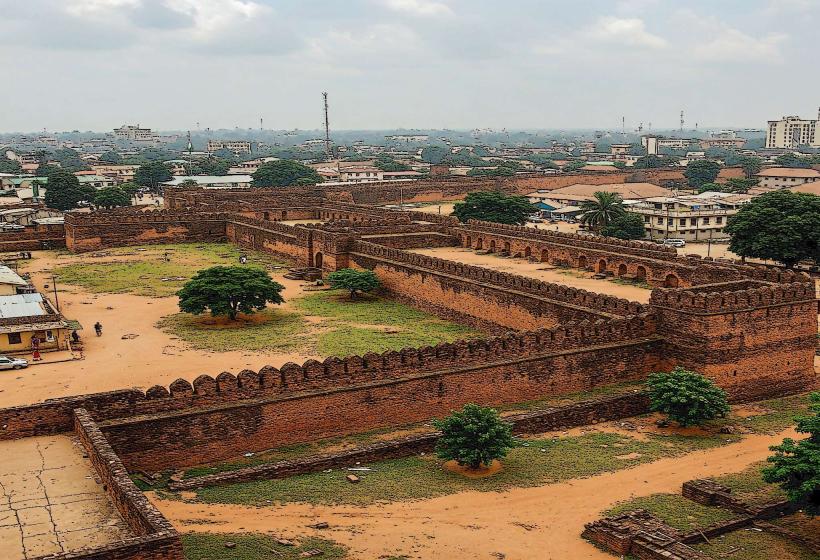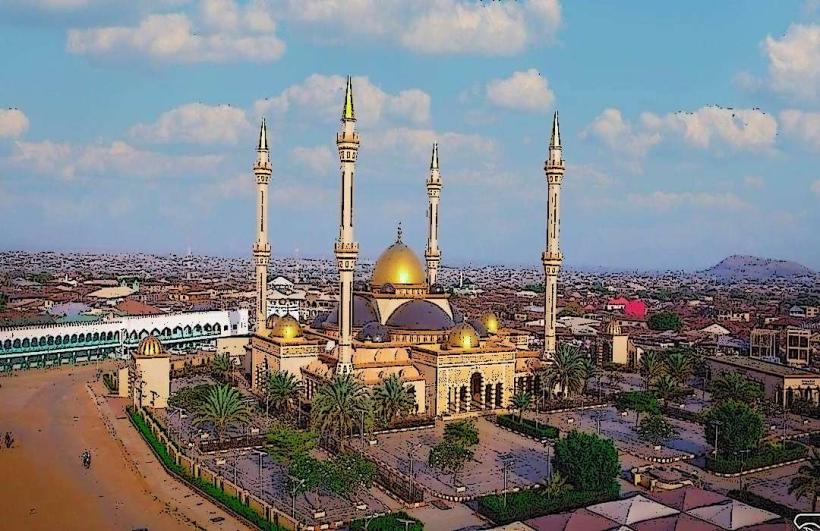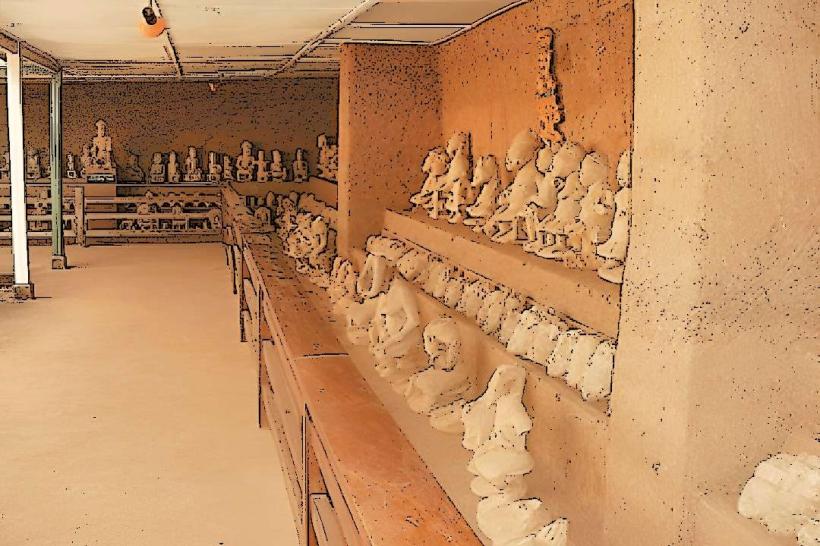Information
City: IlorinCountry: Nigeria
Continent: Africa
Ilorin, Nigeria, Africa
Ilorin serves as the administrative capital of Kwara State and acts as a major cultural and commercial bridge between Northern and Southern Nigeria. It is located in the Middle Belt region, situated approximately 300 kilometers north of Lagos and 500 kilometers south of Abuja.
Historical Timeline
Ilorin was established in the late 18th century as a military outpost of the Old Oyo Empire. It transitioned through a period of rebellion under the Oyo general Afonja, followed by its integration into the Sokoto Caliphate in 1824 after the Fulani jihad led by Shehu Alimi. The city underwent its most significant political reconstruction in 1967 upon the creation of Kwara State, which designated Ilorin as the provincial capital. The primary event shaping its current urban form was the 19th-century transition from a Yoruba provincial town to a Fulani emirate, which established the central role of the Emir's Palace and the Great Mosque.
Demographics & Population
The metropolitan population is approximately 1,080,000 as of 2026. The population is primarily composed of the Yoruba ethnic group, with significant Fulani, Hausa, and Nupe minorities. The median age is approximately 18.9 years.
Urban Layout & Key Districts
The city is organized around the central axis of the Emir’s Palace and the Central Mosque. Key districts include the Government Reserved Area (GRA) to the east, housing upscale residential estates and administrative offices; Taiwo Road, the primary commercial and retail artery; and Adewole Estate (West), a major residential expansion area. The city is bisected by the Asa River.
Top City Landmarks
Ilorin Central Mosque (Ottoman-style architecture)
The Emir’s Palace
University of Ilorin (UNILORIN)
Kwara State Stadium Complex
Sobi Hill
Transportation Network
Internal movement relies on a network of paved roads, with "Keke" (tricycles) and local taxis being the dominant modes of transit. The city is a major stop on the Lagos-Kano narrow-gauge railway and is serviced by Ilorin International Airport. Ride-sharing is available via Bolt. Official taxis are typically painted green with yellow stripes. Traffic density is moderate, with peak congestion occurring at the Post Office and Challenge intersections.
Safety & "Red Zones"
The general safety level is high, as Ilorin is traditionally known as a peaceful city. However, caution is advised in the Gambari and Oja-Oba districts at night due to high pedestrian density and reports of petty theft. Avoid poorly lit areas around the Asa River banks after sunset.
Digital & Financial Infrastructure
Average internet speeds are 25–45 Mbps on 4G networks, with 5G available in the GRA and University zones. Main carriers are MTN, Airtel, and Glo. Card acceptance is standard in hotels and modern supermarkets; cash is required for most traditional market transactions. ATMs are concentrated along Taiwo Road and the Muritala Mohammed Way.
Climate & Air Quality
Temperatures range from 19°C to 35°C. The city experiences a tropical savanna climate with a rainy season from April to October. Air quality is generally good, though the city experiences high levels of dust and haze during the Harmattan season (December–February), which can reduce visibility and impact respiratory health.
Culture & Social Norms
Tipping is voluntary but appreciated (5–10%). Conservative social norms are prevalent; dress codes should be modest, especially when visiting the historic central districts or the Emir’s Palace. Handshakes are the standard greeting. Alcohol is available in the GRA and designated social spots, but its consumption is restricted in the immediate vicinity of the Central Mosque and the Old City.
Accommodation Zones
Ilorin GRA: Recommended for high security, proximity to the city’s best restaurants, and a quiet environment.
University Area/Tanke: Recommended for budget-friendly options and proximity to the academic hub.
Local Cost Index
1 Espresso: ₦3,200 ($2.10)
1 Standard Lunch: ₦8,500 ($5.60)
1 Metro/Bus Ticket: ₦600 ($0.40) - Keke/Taxi rate.
Nearby Day Trips
Esie Museum (First museum in Nigeria): 50 km (60 minutes)
Owu Waterfalls: 110 km (150 minutes)
Jebba Dam: 100 km (120 minutes)
Dada Pottery: Within city limits (20 minutes from center)
Facts & Legends
Ilorin is often called the "City of Lawyers" due to the high number of legal professionals it has produced for the Nigerian judiciary. A local legend concerns the "Sharpening Stone of Afonja" (the city's founder), which is said to have been used to sharpen the spears of his warriors. The name "Ilorin" is derived from the Yoruba phrase Ilo Irin, meaning "sharpening of iron," a reference to this legendary stone which is still preserved as a cultural monument.

